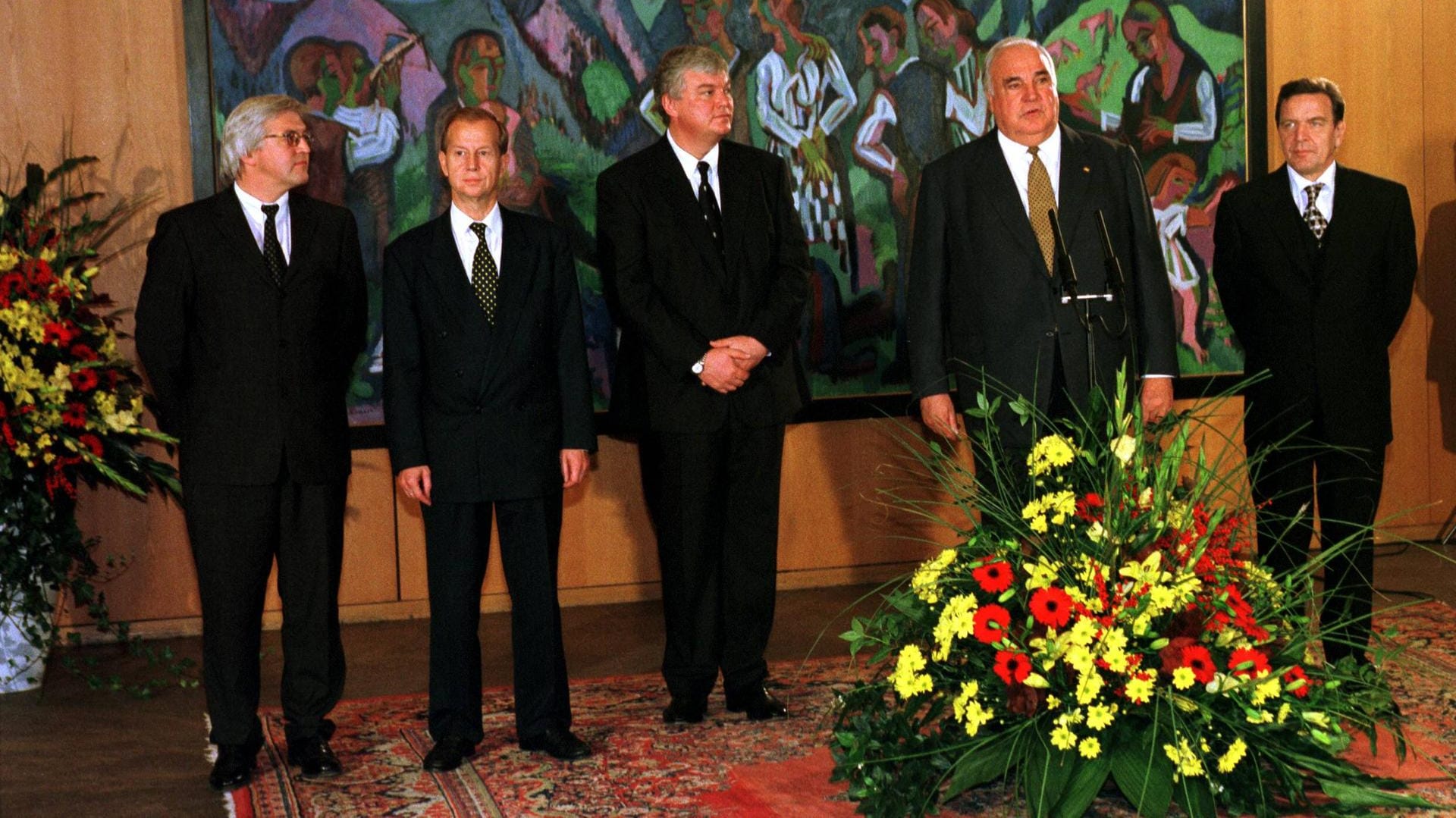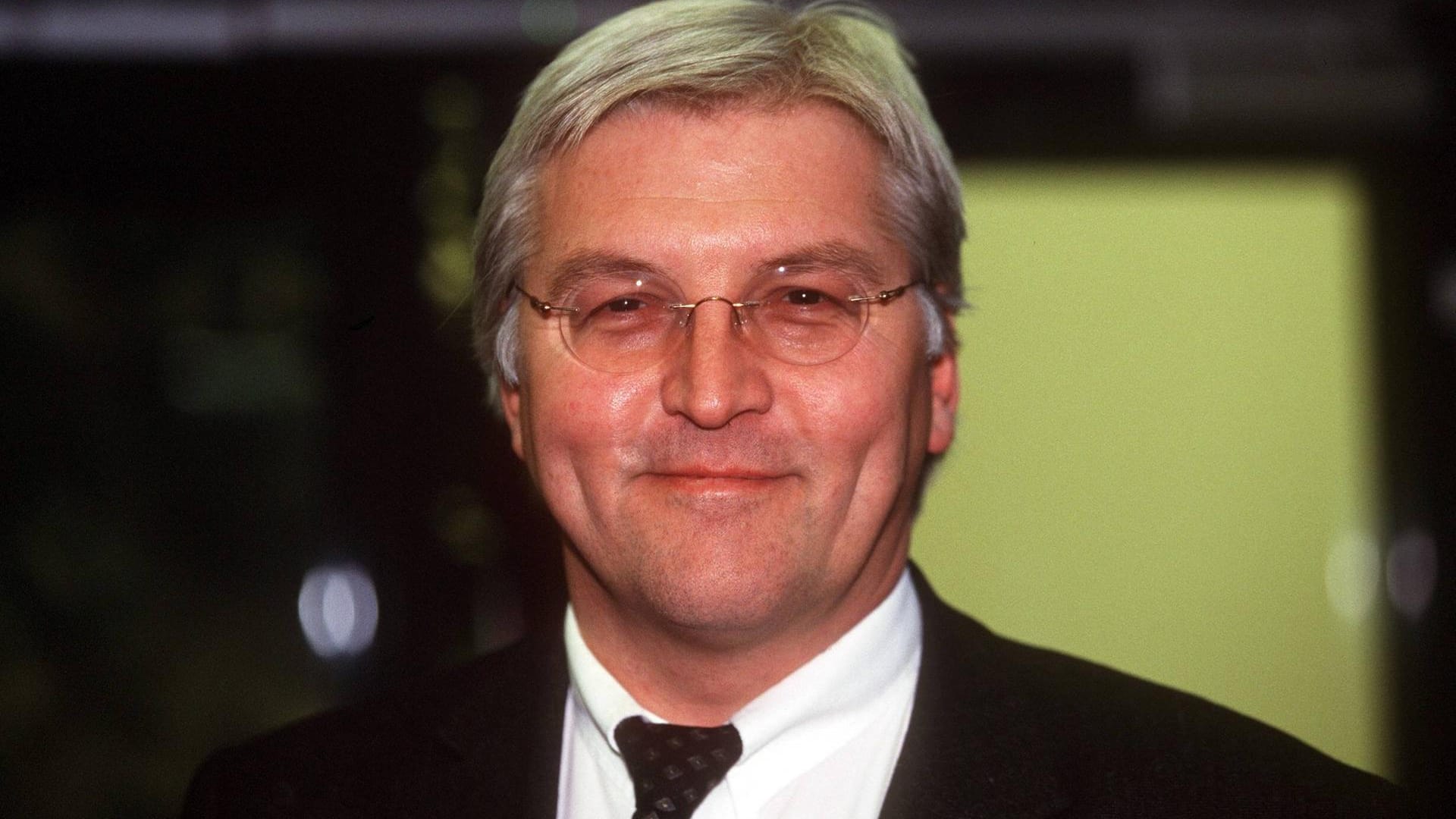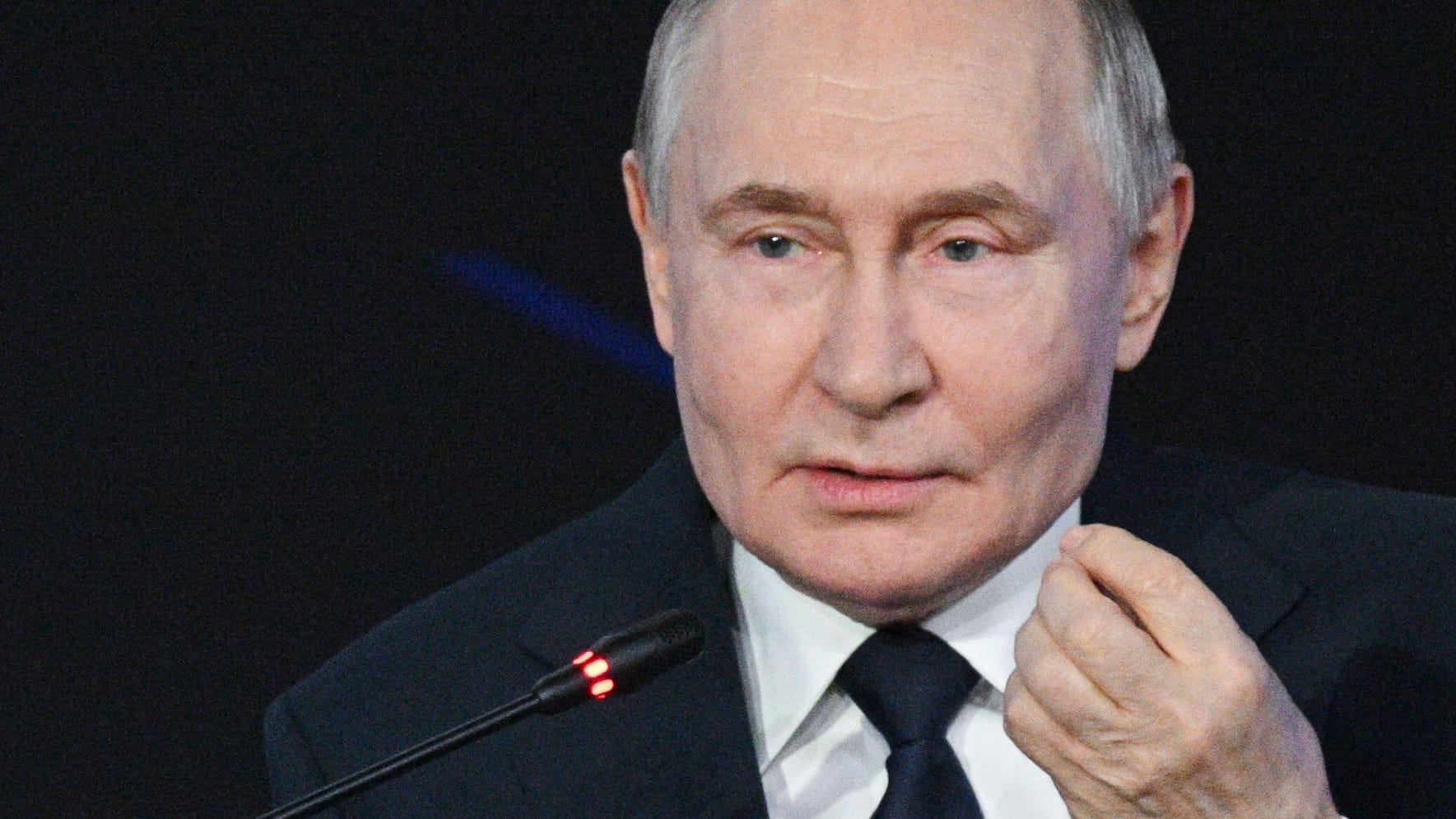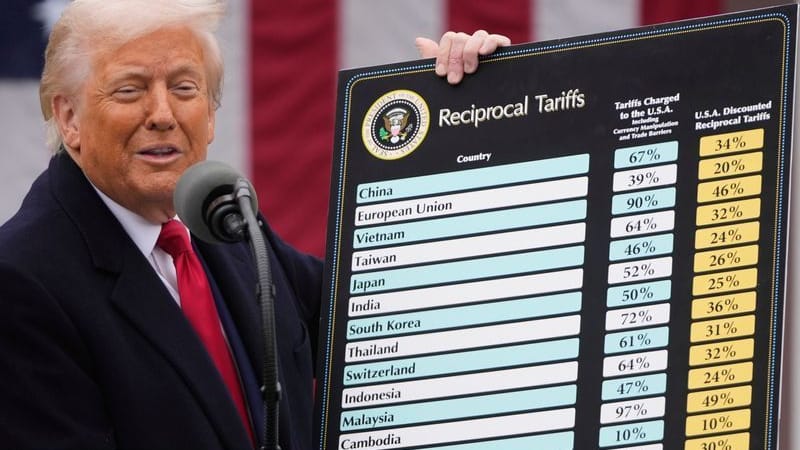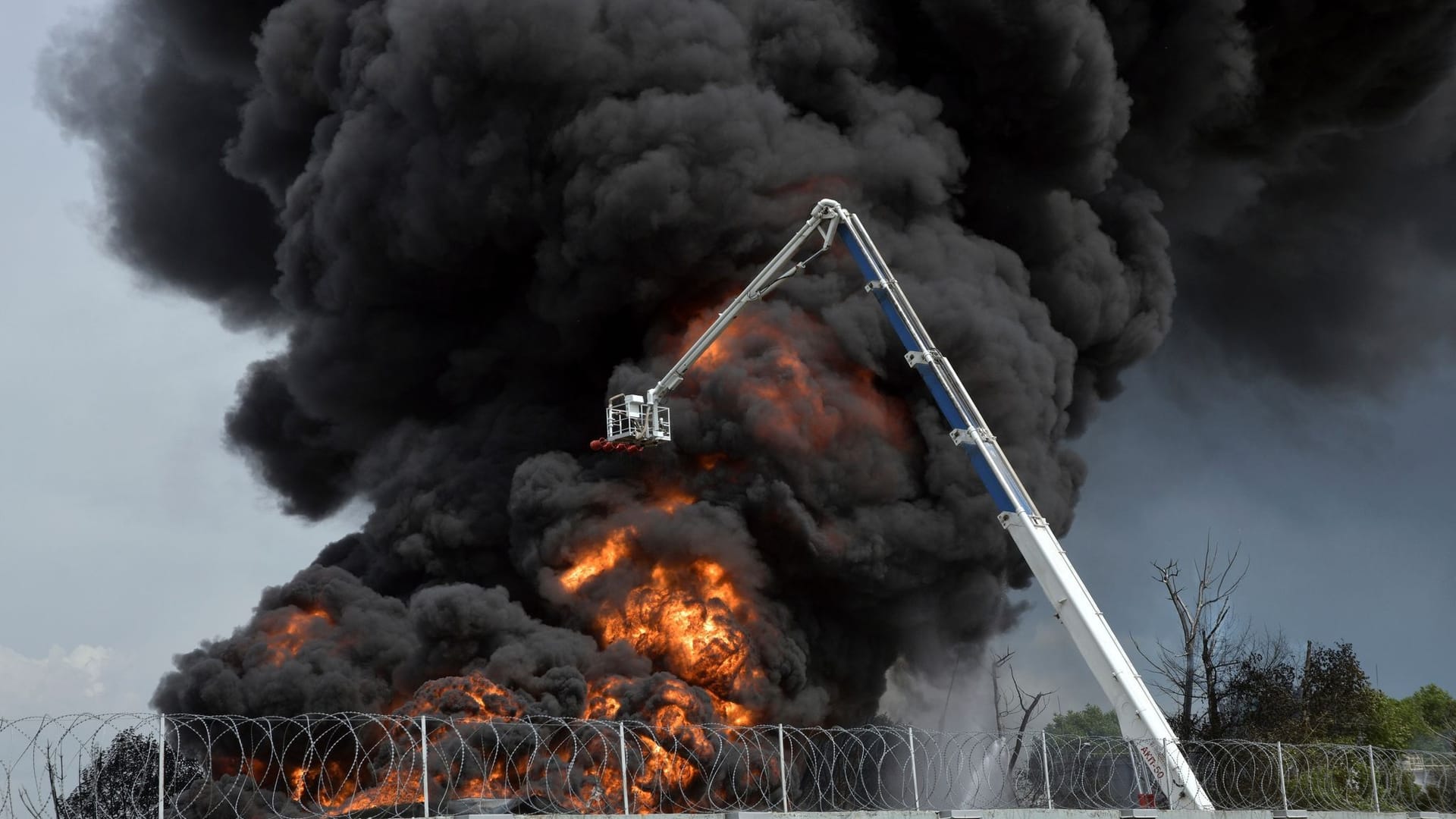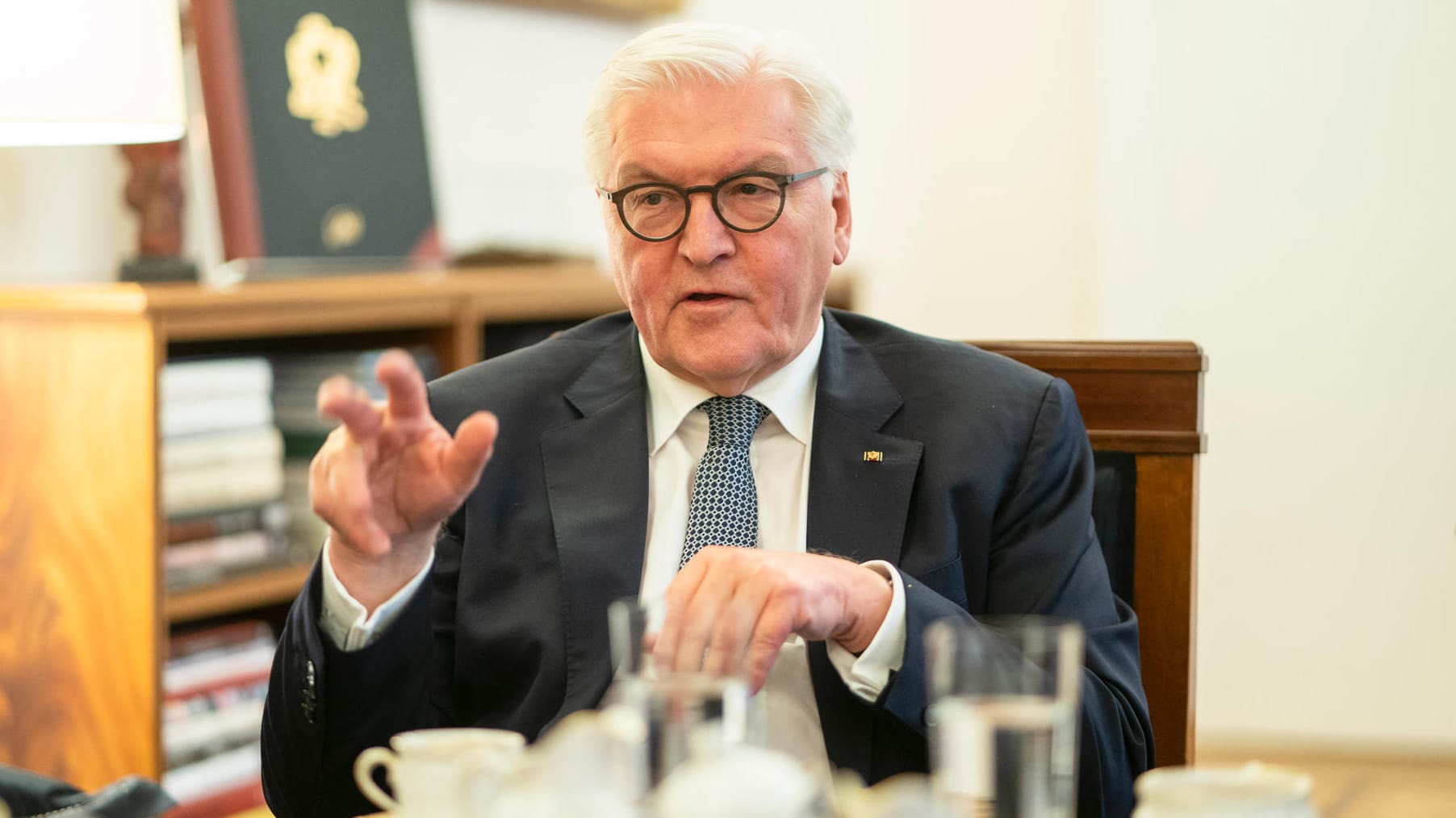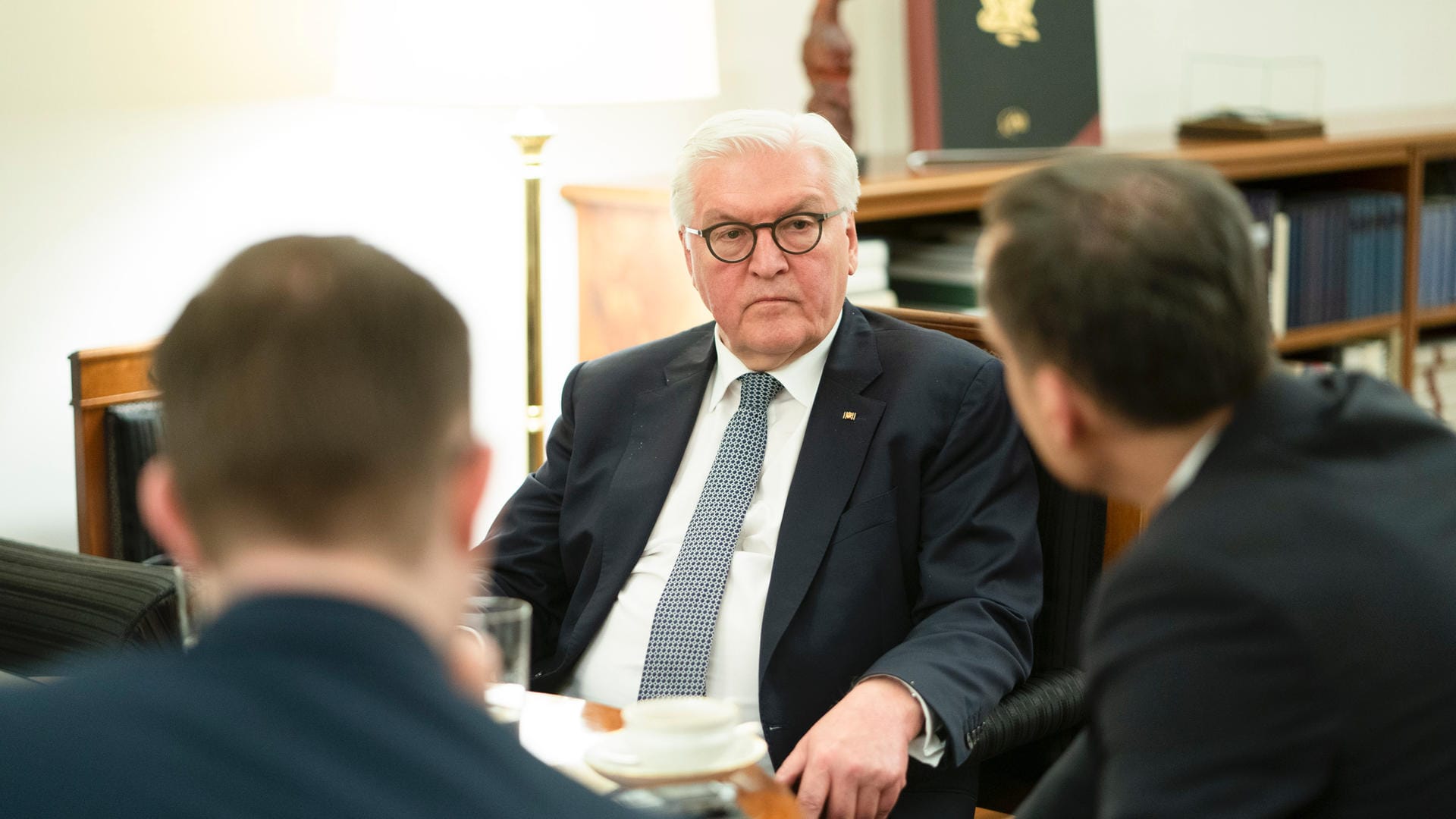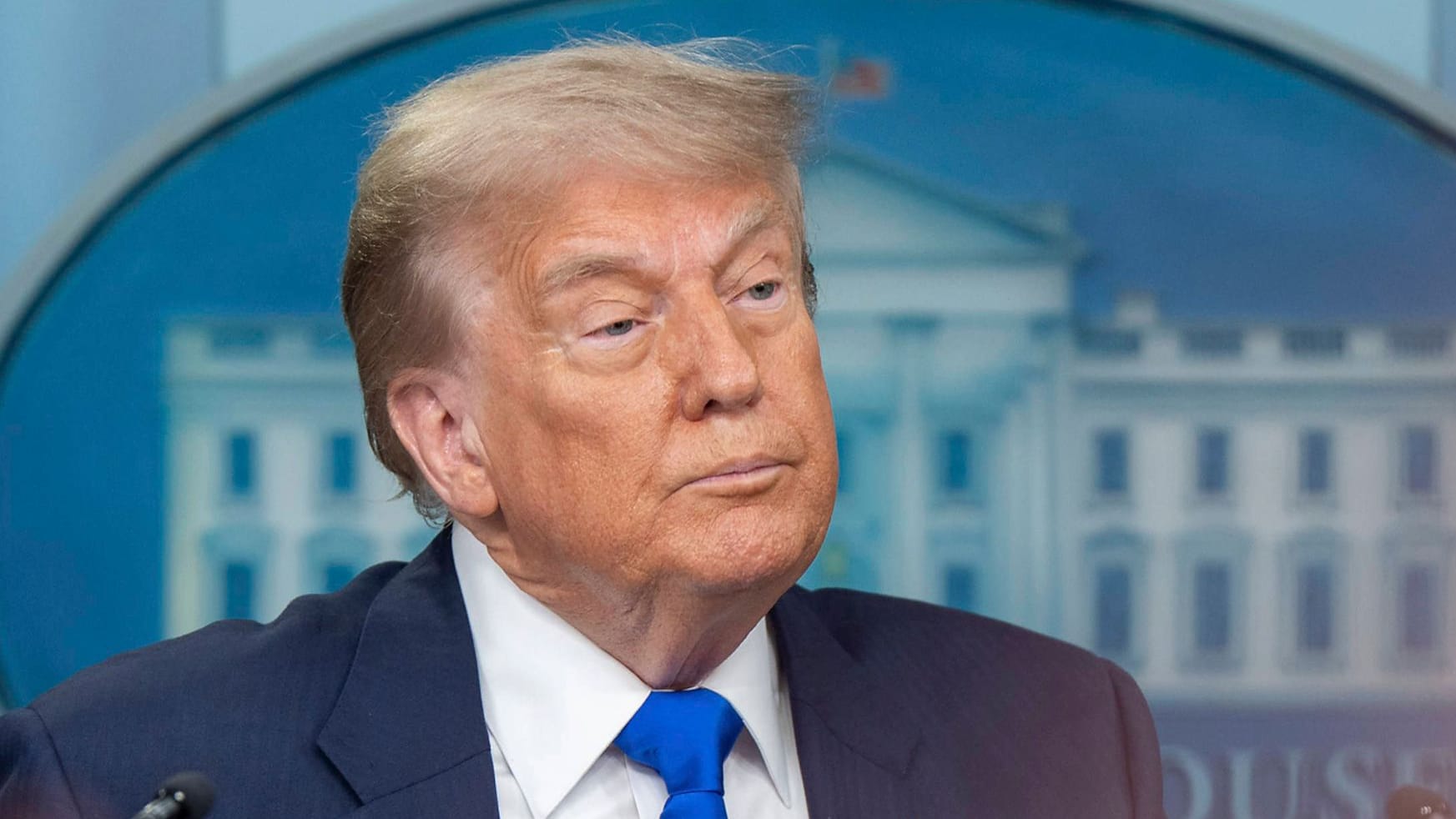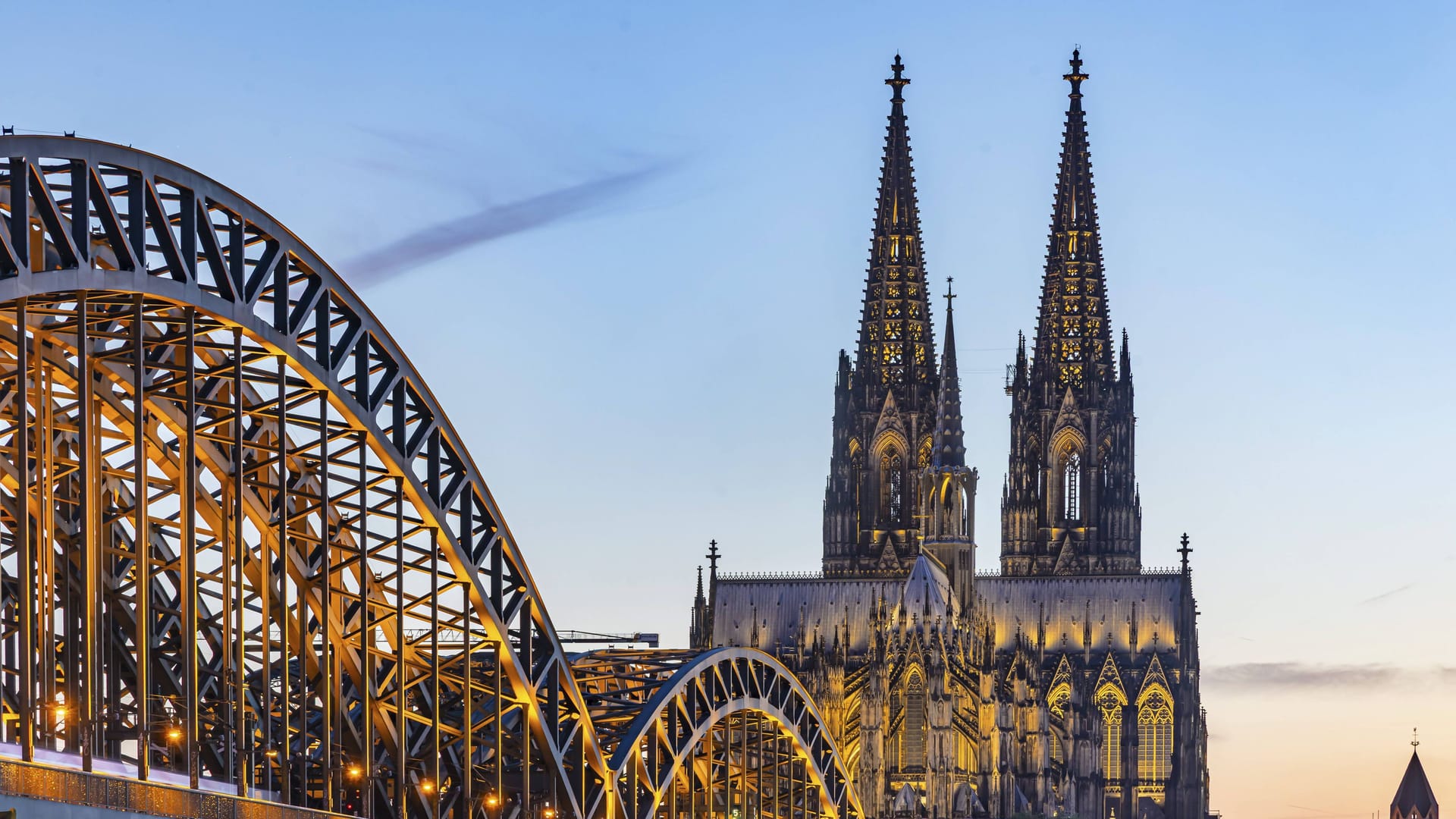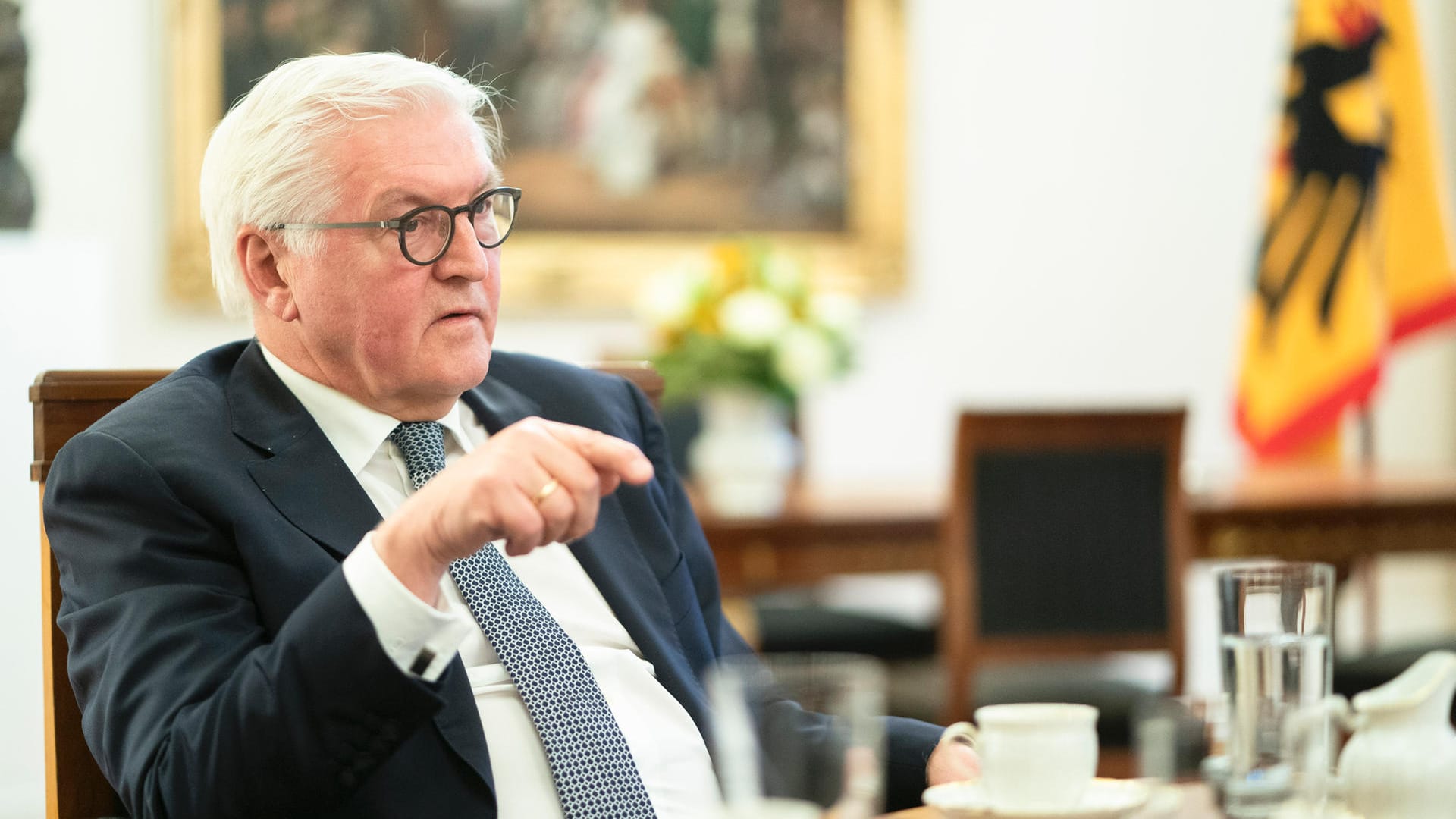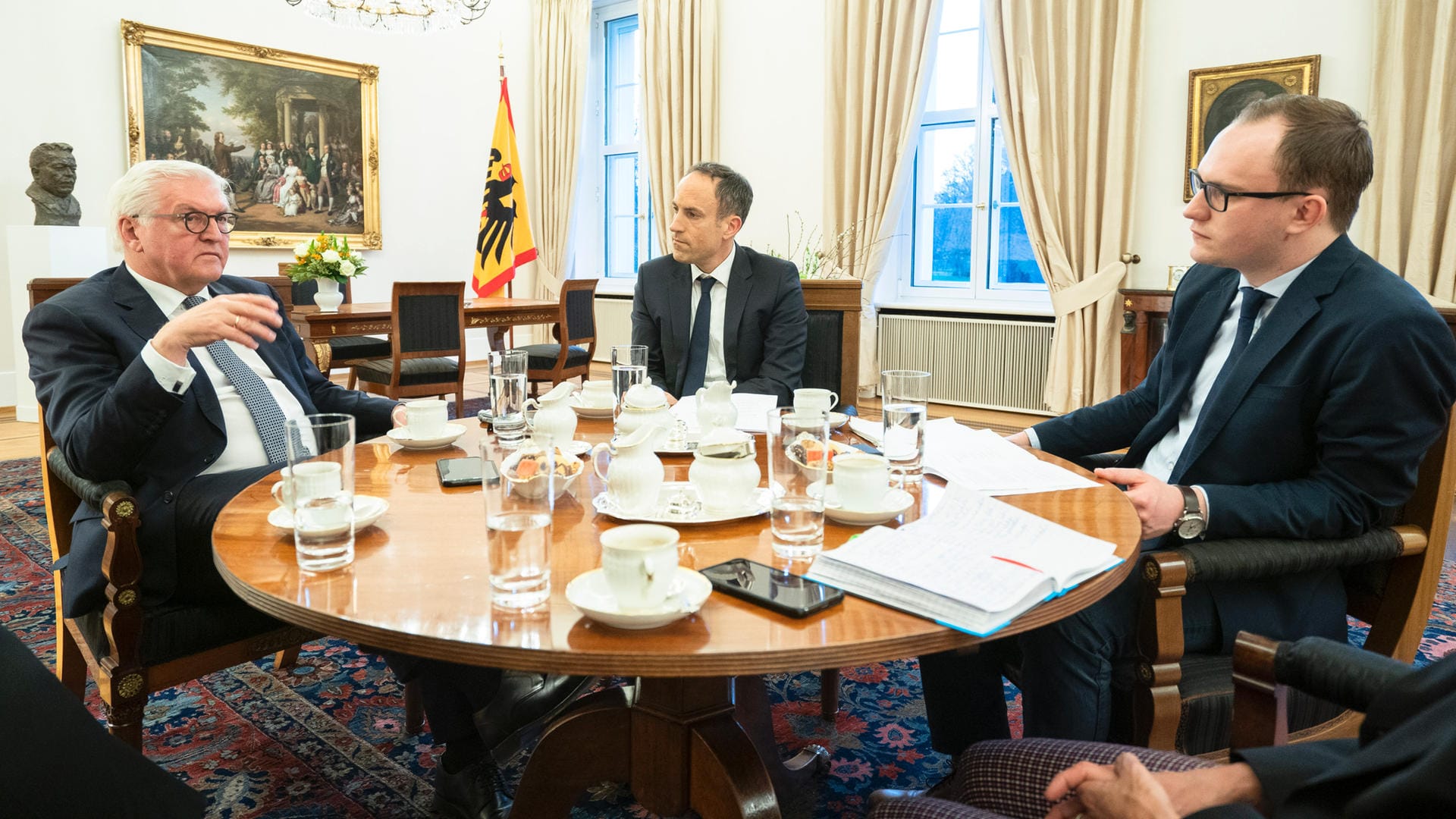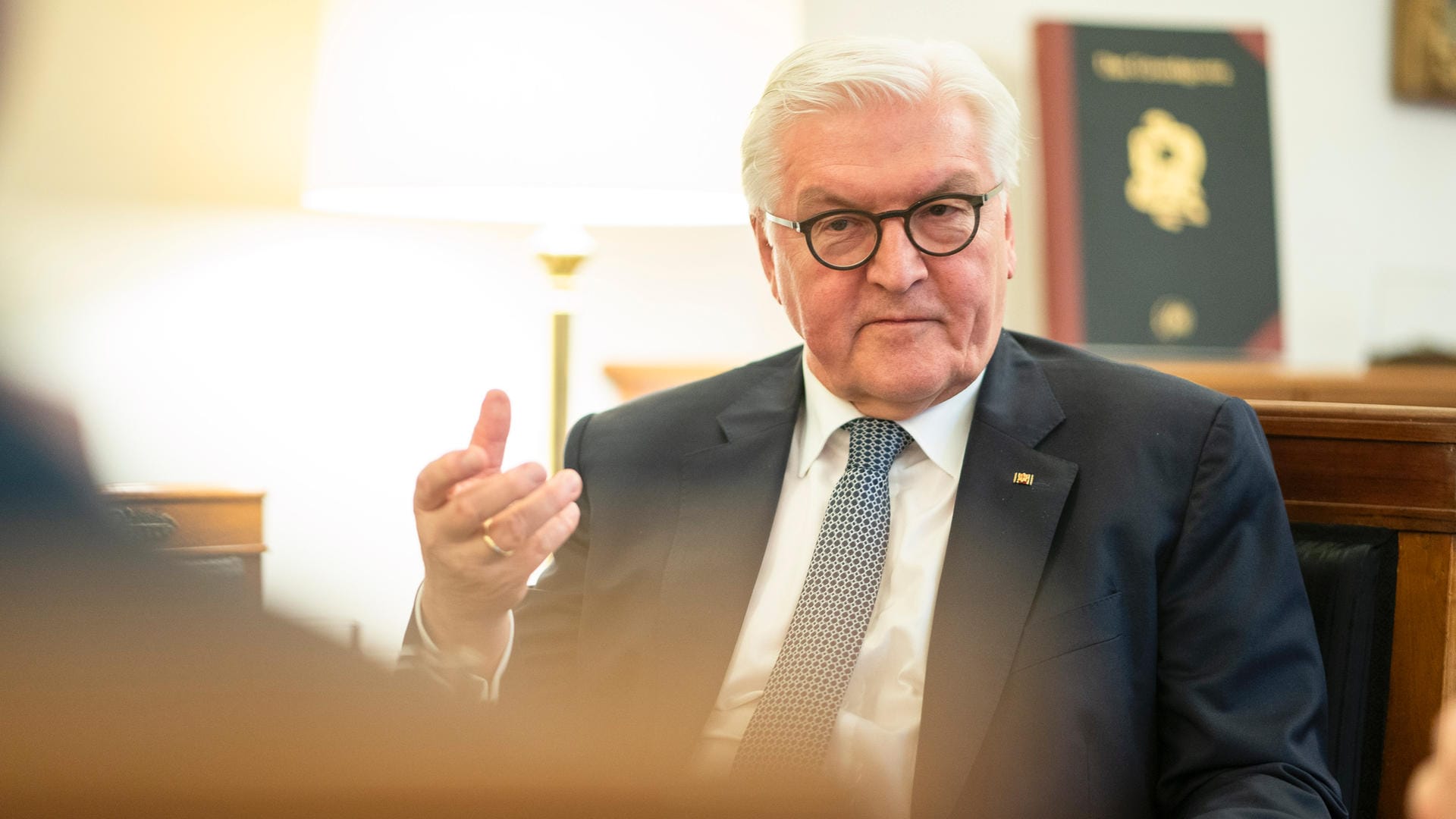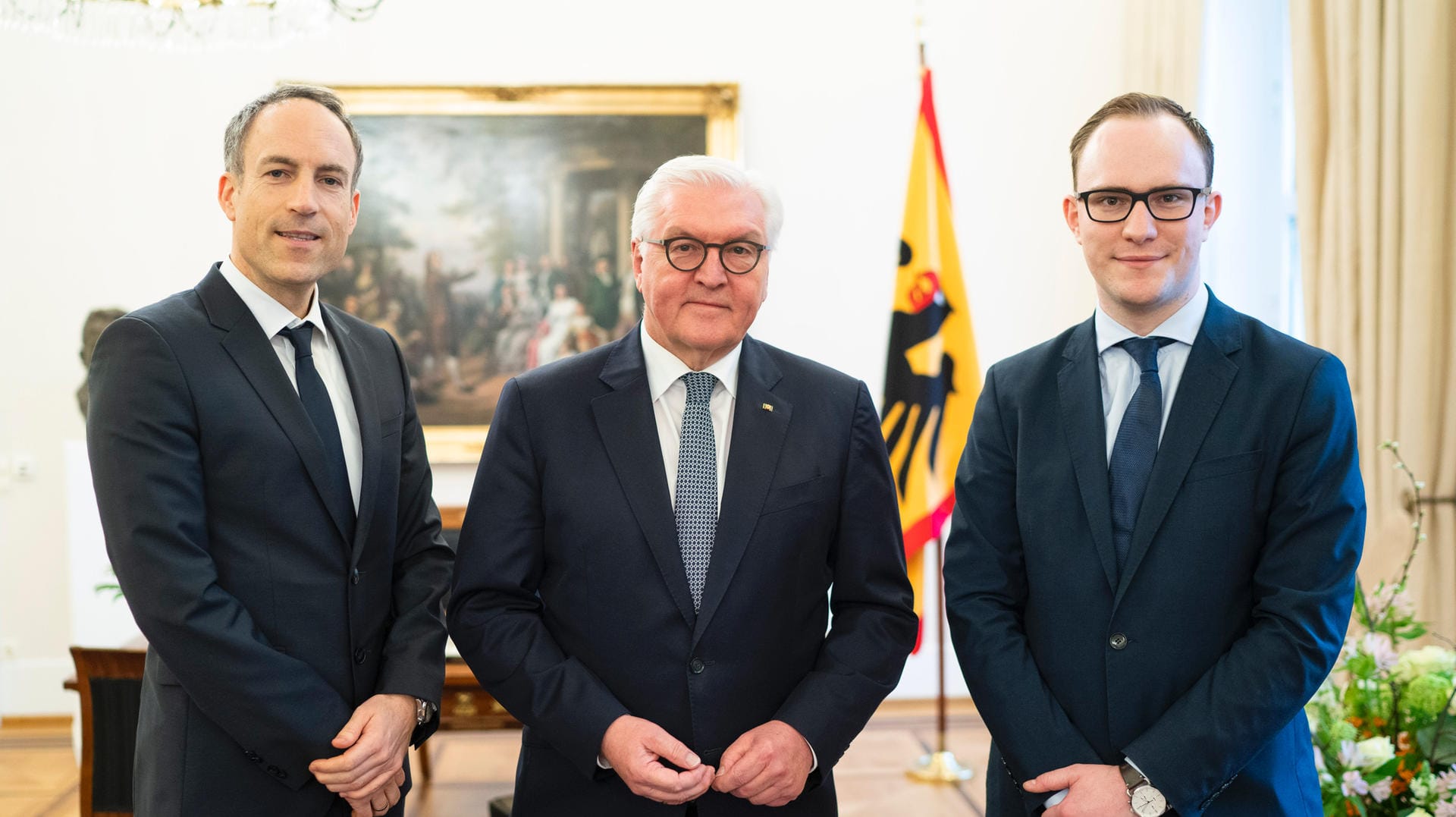
Der Gesprächspartner muss auf jede unserer Fragen antworten. Anschließend bekommt er seine Antworten vorgelegt und kann sie autorisieren.
Zum journalistischen Leitbild von t-online.German President Steinmeier about Corona "The world will be a different place"
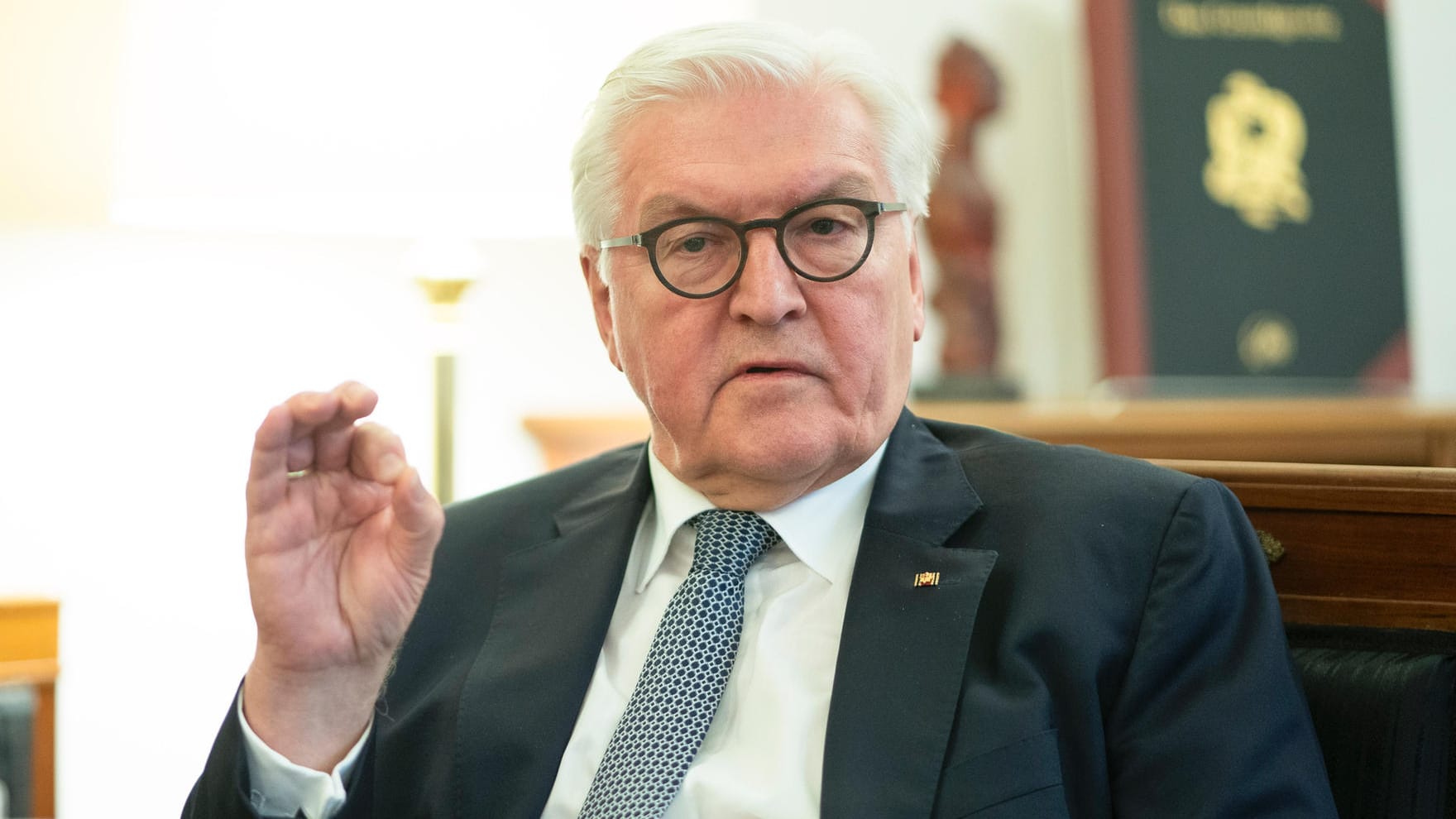

In an exclusive interview with t-online.de, German President Frank-Walter Steinmeier talks about the effects of the coronavirus epidemic on Germany – and how the country should respond to the refugee crisis in Turkey.
Germany is experiencing one of the most significant crises since the Second World War. The number of corona infections in the country is growing exponentially: 5.813 cases were registered on Sunday evening (7pm). The borders are partially closed, events are being canceled, and public life in many places has come to a standstill. At the same time, uncertainty and fear keep spreading among citizens.
German President Frank-Walter Steinmeier shows concern about the situation. But at the same time, he is determined to display courage. He speaks openly about the current challenges Germany is facing: the coronavirus, the refugee crisis, right-wing extremism – and the division in society. He analyzes, he warns and he appeals to the nation: together we can overcome these problems.
Read the exclusive interview here, published today on all major internet channels and thousands of public video screens in train stations, city centers and shopping centers across Germany (the German version of the interview can be found here):
t-online.de: Mr. President, since the beginning of the year, it has been one major news event after the other. At the moment, people are concerned about the coronavirus. Share prices are plunging, events are being cancelled and the shelves are empty in many supermarkets. What approach do you advise people to take in light of the situation?
President Frank-Walter Steinmeier: First things first: We will defeat the virus. But the kind of society, the kind of world we will live in afterward depends on how we act today. The first and most important challenge is slowing down the further spread of the virus so that our health-care system can cope with the rapidly increasing burden of new infections. So that we can save as many lives as possible. Drastic and immediate changes in our daily lives and our professional lives are necessary to do so. We have to give up old habits like greeting people with hugs, kisses and shaking hands for a while. Some will say: “Why do we have to do all this? I am young and strong and it doesn’t affect me!” To all those people, I would say: There is more to this than whether you will be personally affected. What we are doing today is primarily to protect the older and weaker among us. Our self-restraint today can save lives tomorrow.
Economic life has also been severely disrupted.
That is why the second task is to overcome this dramatic disruption, of which no one can say yet how long it will last. The federal government has made wide-ranging decisions to address this. To me, it is especially important that we also help smaller companies and freelancers, service providers and people working in the arts to get through the coming months. The coronavirus cannot be allowed to become an existential crisis for companies. We cannot allow the virus to infect the labor market as well.
Infections are already present in countries all across Europe. What should politicians be doing to address it?
Our third task is to keep Europe together. It is clear that the virus can only be defeated together. People can be stopped at borders, but viruses don’t care. Viruses have no nationality. Anyone who thinks only of themselves right now, who looks for the cause of the epidemic in others, is following a highly dangerous path that is as ineffective as it is harmful. The coronavirus presents us with an immense challenge. It is up to us whether solidarity both inside and outside of our borders gains the upper hand – or the egoism of everyone for themselves. The world will be a different place after this. The direction it takes depends on us.
The measures enacted for curbing the pathogen differ within Germany. In some places, schools were quickly closed and gatherings banned, but in other places the reaction has been more hesitant. Do you think the federal government and the authorities are demonstrating enough rigor and determination?
I have some experience with crises. And I know that there are also learning curves in politics. We are all faced with completely new questions. Only a few days ago, we all would have thought that school closures were exaggerated, but today they are a reality almost everywhere. My impression is that the federal and state governments are acting decisively and purposefully to slow down the spread and, at the same time, to push ahead with preparations. Anything that serves these goals must be examined seriously and open-mindedly and then implemented quickly and consistently. And that is happening. In addition, however, we also have to start thinking about the longer-term consequences of this pandemic today: For our country, for our economy and for our neighbors.
What do you have in mind?
Not all of our European partners have the resources and possibilities that we do. As such, in times of need like this one, there is also a need for European solidarity. If we succeed, we may even draw new strength from the experience, that cohesion makes us strong – at home as well as in Europe.
An equally dramatic crisis has been escalating these days along the border between Turkey and Greece. The EU is warding off people in need with barbed wire and tear gas. Is this severity compatible with our European values?
The situation of the people on the Greek-Turkish border and in Greek refugee accommodations is dramatic. The children, women and men are living there under the most difficult conditions. That is why I am very pleased that Germany, together with six other EU member states, is setting an example by taking 1.600 children into the EU and providing them with protection. It is the least we can do. At the same time, we cannot dispense with the protection of the EU’s external border and protection against uncontrolled border crossings. Europe cannot allow itself to be blackmailed by a cynical policy that deliberately sends thousands of people down a dead-end road.
Apart from these children, the German government doesn’t want to take in any more refugees. Politicians are saying that we can’t have a repeat of 2015. Back then, though, Germany sent out a message of magnanimity that went around the world. Today, by contrast, the country has walled itself in. Have we become heartless?
Of course not! Our country must and will responsibly fulfill its humanitarian and legal obligations when it comes to the admission of civil war refugees. We are seeing many signs of a willingness to help in German states, cities and communities. That is good. But we cannot bear this responsibility alone. Our goal has to be a common European migration policy and the joint protection of Europe's external borders. EU cooperation with Turkey on migration issues is also still needed. That is why a joint approach by all, or at least by several major EU member states, is of vital importance.
The refugee agreement with Turkey is obviously not working any longer and a new one would require making further concessions to President Erdogan. But once again, that would merely be addressing the symptoms of the crisis and not its core. Neither Germany nor the EU has developed a convincing plan for bringing about an end to the war in Syria. In your speech at the Munich Security Conference, you said: “The job of prudent foreign policy is and must be to prevent wars, defuse conflicts and lessen suffering through courage and drive.” Do you think Germany should intervene more actively in the Syrian conflict by, for example, increasing pressure on Russia to establish a no-fly zone?
We are right to criticize Turkey for using people in need as a means of political pressure at the border. But it is also true that Turkey itself is under great pressure. It is hosting more than 3.5 million refugees. It is therefore right that we, as Europeans, provide support to Turkey in taking these refugees in and caring for them.
But again: Should Germany get more directly involved in the region beyond providing support for the care of the refugees?
The cause of the renewed escalation lies in the almost endless drama of the cruel civil war in Syria. Of course, we need to try to do more for the distressed people of Idlib. But anyone who thinks that protection zones or no-fly zones are the right recipe cannot dodge the difficult question of who will enforce them or how. Even years ago, there was no easy answer to this question. And after so much violence, murder and displacement, it has become all the more difficult. The failure to bring peace in the Syrian tragedy was one of the most bitter experiences of my time as foreign minister. In my opinion, the opportunity to do so would have been before the outbreak of the military conflicts. Since 2011, when Syria increasingly became the scene of proxy wars for dominance in the Islamic world, the pacification of the conflict has become more difficult from year to year and ended with the complete withdrawal of American influence and the military dominance of Russia and Iran.
Many people are also concerned about right-wing extremist violence. There was the murder of Kassel District President Walter Lübcke, then the attack on the synagogue in Halle and most recently the murders in Hanau. What do you feel in the wake of these crimes?
Dismay and deep sadness. I went to Hanau on the day of the attack and sat down together with the families. It was too early for conversation, the news of the deaths of their loved ones was only a few hours old. Not everyone had yet grasped that a nightmare had become reality. So, after I addressed them shortly, we remained silent – and nobody held back their tears.
And what did you say to the bereaved?
I told them that I obviously could not comfort them. Nobody can do that when a child, wife or brother is taken from you. But I wanted to give the relatives the feeling that they were not alone with their fate in a situation like that – that they were not alone in their grief and not alone when it comes to the consequences of the crime for the families. And also that the state would not look away when such a horrible, racist crimes are committed and that it will do everything to investigate the crime and the background behind it.
What do these three attacks within a few months of each other tell us about the state of our society?
I am firmly convinced that the vast majority in our country stands for democracy, the rule of law, freedom, the protection of minorities and freedom of religion. But just knowing that you are part of that majority isn't enough. The voice of the majority needs to be heard. Their silence emboldens the few, who out of their ideological delusion or simple hatred, resort to means of ostracism, humiliation or even violence.
Could you please be a little more specific? Who needs to be more active against racism?
The majority must speak out – responsibility for this does not just lie with the state or political parties. Every single one of us must object if we hear racist statements at our local bar or in the football stadiums. Because there is only one possible answer to that: "If that's your attitude, then you do not belong here." I know that what I am expecting is difficult. But it is necessary.
Three murderous right-wing extremist attacks in such a short period of time: It also makes it clear that mistakes were made by the security agencies.
The three attacks are unfortunately further proof that German security agencies have underestimated the dangers of right-wing extremism. Security officials were forced to admit as much following the revelations of the NSU murders. And their mindset and assessment is changing! I am also pleased that almost all party groups in German parliament have identified the need for a comprehensive review and have passed some measures that improve the legal options available while indicating that more are coming – from improved protections against hatred on the internet to stricter legislation pertaining to weapons and their registration. This was badly needed.
But is that really enough to ward off the danger posed by the right?
In Israel, I recently said with respect to the Holocaust: “I wish I could say that we have learned from history.” Many have learned from history, without a doubt. But the lessons obviously have not reached everyone. Which is why both are necessary: On the one hand, to see history as a measure of the terrible consequences racism can have. On the other hand, to reaffirm the common interest in the future of democracy and an open society. We must use the instruments of the rule of law to respond when individuals refuse to accept these lessons and commit crimes motivated by racism.
Many people with an immigrant background are feeling threatened or ostracized following the attacks. How should society respond to this?
We need visible solidarity. After the Hanau attack, people gathered for vigils in more than 50 German cities. That did not require a call from politicians. Many had the right intuition and the desire to show the families that they were not alone with their loss. They have shown that the murdered people belong to our country. Such gestures are important.
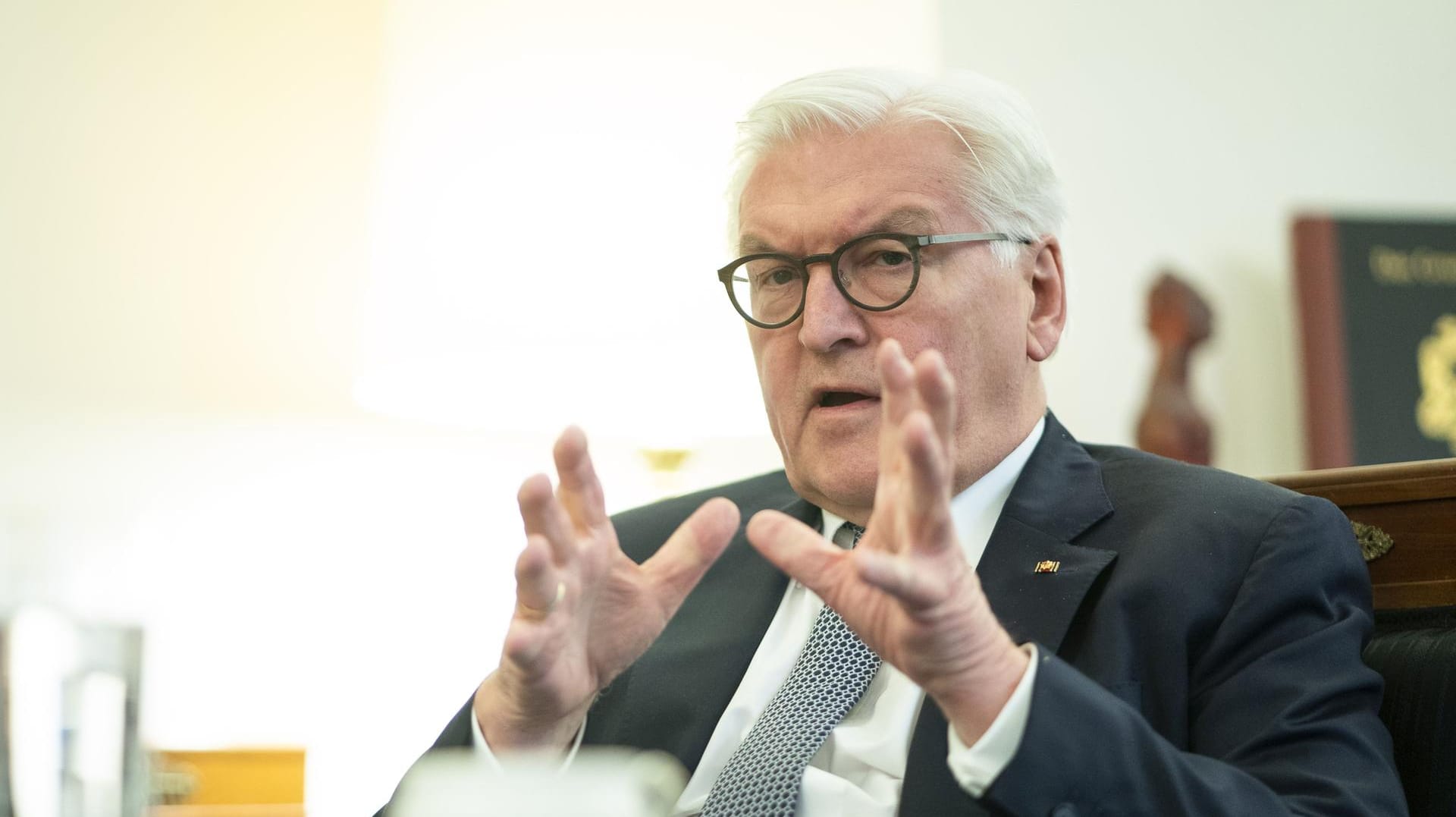

The murder victims were Germans, and yet there was some public discussion of "xenophobia.”
Yes, the choice of words is simply wrong. The people who were murdered were mostly born and raised here. Hesse was their home. There are no first and second class Germans. If this is called into question through attacks like this, which are in fact racist and not xenophobic, then the entire democratic order is called into question. We must be even more clearly committed to the position spelled out by the German constitution: Those who have German citizenship are Germans. Period. Anyone who calls that into question is acting with racist motives.
When you took office in spring 2017, you described the dangers facing social cohesion in our country at the time. What is your conclusion today, three years later? Is our democracy more stable or more fragile than it was then?
With the coronavirus epidemic, our democracy is facing a new challenge that has not been seen before in our generation. Liberal societies are used to a high degree of individuality and freedom of movement. But it is precisely these things that must now be temporarily restricted so that we show consideration for others and not endanger our fellow human beings. People are right who say: Corona also helps you think more about how others are doing, to be mindful, to be considerate. And a whole lot of people are now doing this on their own initiative. They are demonstrating that liberal societies are capable of considerable communal efforts. This experience of solidarity and community spirit in a crisis, the likes of which we have never known before, can strengthen us as a society. The societal and economic consequences will continue to occupy us for a long time to come. But I am optimistic that we will also be able to master these challenges. For I have gained the impression that the large majority in Germany has become more sensitive to questions of democracy and is prepared to engage and fight for it. Also with an eye to the alternatives available.
You'll have to explain that.
When I took office in 2017, I had the impression that we in Germany are too blasé about our situation. That we are quite complacent in our faith that polarizing developments like the ones we are seeing in the United States, but also in several of our neighboring countries, will not reach us. That we have been spared of the growing fascination with the authoritarian. I always thought it was an illusion. We do not live on an island, as we are now experiencing painfully. Everything is interconnected. The corona crisis is a clear demonstration of that. For our democracy, this means: Our response to this crisis will be part of the global debate on the best political system. Does authoritarian intervention or retreating into our own country offer a more convincing solution? I hope that even in this crisis, we will continue to rely on what makes us so strong as an open society, as a democracy: transparency, honesty, reason, responsible behavior. This applies to every citizen just as it does to our national leaders. If we take this to heart, then we can defeat the virus without it poisoning our society at its core.
What do you think are the reasons for Germans’ complacency?
Seventy-five years after World War II, a certain familiarization has set in here in Germany: Many believe that political stability is part of our country’s DNA. But that is not the case. Nowhere. We are currently seeing how quickly things can develop in a different direction. And yet we also know from history that when a political state persists for a long time, we often – incorrectly – believe it is guaranteed for an eternity. Democracy is not a given. In most cases, it is achieved in battles against authoritarian powers. Now democracy and cohesion are facing a new test. This does not require heroism from each individual, but indifference and constant indignation is not an attitude the preserves democracy. What is needed are examples of civic spirit, commitment and solidarity.
Who will these role models be?
People who are willing to take responsibility for others. People who, particularly in critical situations, think about more than personal advantage – no matter on which level. Think of the hundreds of thousands of caregivers, nurses and doctors – and especially the scientists. They are working to their limits and beyond these days. These are people who credibly demonstrate that they have the country's future on their minds. They are role models for our country.
So, it’s not enough to trust our legal system and the constitution?
We undoubtedly have a strong constitution. The Basic Law is the answer to dictatorship and ethnic-nationalist ideology, to racial mania, exclusion and devaluation of the individual. And that answer is not just democracy. The democracy provided for in the Basic Law is based on individual freedom, fundamental rights, rule of law, the openness of society, the protection of minorities, the welfare state, the separation of powers and federalism. But democracy does not live simply because the constitution provides for it. Democracy lives when people commit themselves to it, become involved for it and, most importantly, in it. It lives from people taking responsibility – at all levels, but especially at the local level. Here I am thinking of the many, mostly volunteer municipal and city council members and mayors. They are the foundation on which the building of democracy stands.
Another issue that has grabbed our attention in recent weeks is the political drama in Thuringia. Do you think this has widened the gap between eastern and western Germany?
I cannot answer this question solely with regard to the difficulties of forming a government in Thuringia. It goes deeper. The years before 1990 shaped the East and the West differently. In the West, there is sometimes a lack of sufficient sensitivity for the fact that the differences were deepened not only before, but also after the fall of the Wall: Many people in the East were forced to experience ruptures in the 1990s, especially in their professional lives: The working world changed radically. This was often accompanied by the loss of their social surroundings. This still shapes the differences between eastern and western Germany today.
Can these ruptures be healed?
Yes, I am convinced of it. But 30 years is not all that long a time period for integrating the differences into a common history and overcoming divisions.
How can this be achieved in practice?
Many people do not yet perceive German history after 1990 as a common history, but as two parallel historical developments: one in the West and one in the East. It is certainly the case that to this day, the stories of the East have not become part of the common narrative of history to the same extent as those of the West of our republic. That’s why I started a series of events some time ago under the ambiguously titled “Geteilte Geschichten” (Editor’s note: the German word Geteilt can mean either shared or divided) – because the stories in the West and the East are not the same, but they should become a common history by sharing them. The German president can lead the way, but it needs to take place in many places in this society.
Many western Germans, however, have the impression that although there is constant talk about the sensitivities of eastern Germans, too little is said about the problems in the former West German states.
That is why it is important not to simply ignore the significant cuts in economic development there, either. For me, at any rate, that was the decisive reason for my presence when hard coal production was discontinued about a year ago. I wanted to say “thank you” to the miners on the last shift for what they have done for the restructuring of our country. But not only that. I also wanted to encourage and reassure people: The end of coal mining is not the end of history, but the beginning of something new. And it is the shared responsibility of society to ensure that a future emerges from this beginning, one in which people can make a living from their work and live in a place they call home and where they like living. We face the same challenge in other regions, where economic modernization and transformation will radically change the structures that have been developed.
It is not just the differences between East and West that have people concerned, but also those between urban and rural areas.
And those in the city who arrogantly look down at those in the country get two things wrong. First: The majority of the people in Germany still live in rural areas. Second: Neglecting rural areas does not conform to the Basic Law's promise of equal living conditions.
As president, you have made it a priority to travel to many small towns. What experiences impress you most when you do?
Whether in southwest Palatinate, Lusatia, Western Pomerania, Uckermark, the Bavarian Forest or northern Thuringia: in many places, people have similar experiences. The internet is slow, the journey to school for children is getting longer and longer, same with the trip to the medical specialist, the kindergarten and the pub have closed their doors, and ultimately, the last meeting point in town, the gas station, is also closed. That is a bitter pill to swallow for people who cannot move to the city or don't want to.
Simply bemoaning the situation isn't enough.
I think we underestimate how many people struggle against being left alone and left to their own devices. Yes, these changes are happening, and the pressure at the local level is borne by fewer and fewer shoulders. But there are also people who are willing to shoulder this responsibility. I have seen many encouraging examples during my travels.
Mr. President, thank you for this interview.
- Translator: Daryl Lindsey
- Interview with German President Frank-Walter Steinmeier at Castle Bellevue








